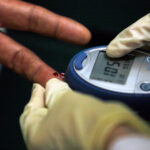When a parent is diagnosed with a mental illness, the chances of emotional support are decreased and the risk of family discord is high.
In the summer of 1995, Ayanda Mokoena* and her mother got into a heated argument. Mokoena, who was 14 at the time, doesn’t remember what the fight was about. But she can clearly recall what happened next.
“We were in the kitchen and she was saying that I’m cheeky,” Mokoena recalls. Her grandmother was in the room, trying to intervene. “She was saying: ‘Leave it Ayanda, you know your mother is not well.’ ”
But Mokoena didn’t listen. Instead, she yelled back.
Suddenly, her mother grabbed a knife from the wooden block on the kitchen counter. Her grandmother screamed: “Run! Your mom is going to do something, she is not well!”
This time, Mokoena listened. As fast as she could, she ran into the quiet streets of the small town on the KwaZulu-Natal South Coast and sought refuge in a neighbour’s house.
The teenager was used to her grandmother restraining her mother when she became violent and attempted to stab people. But this was the first time that she was on the receiving end of one of her mother’s outbursts.
“I was shaken,” Mokoena says, leaning back in her chair. After a long silence she gives a pensive smile. “But I didn’t hold it against her. She was very sweet when she was okay. She was kind, even affectionate. We’d hug and kiss.”
Over the years, Mokoena had learned that she couldn’t take her mother’s behaviour personally. Her grandmother and father had explained to her that her mother was sick.
“They said she got more ill in 1981 when she had her first child – me.”
She pauses.
“I grew up being told that my mom is not well. She was always in and out of mental hospitals.”
Early diagnosis but still disengaged
Mokoena’s mother was diagnosed with schizophrenia when she was 21. Schizophrenia is a severe, chronic psychiatric illness characterised by a distortion in perception, emotions and behaviour. The condition often results in hallucinations, delusions, disordered thoughts and abnormal behaviour, according to the World Health Organisation (WHO).
A 2012 University of Toronto study published in the Journal of Population Therapeutics & Clinical Pharmacology reveals that Mokoena’s mother was diagnosed with schizophrenia at a relatively early age. “The prime age of onset for schizophrenia in women is during the childbearing years from ages 25-35,” the study states.
But Mokoena believes her mother had been ill long before then and was only diagnosed after her birth because it was the first time that she had access to proper medical care.
Growing up in the rural Eastern Cape, Mokoena’s mother had always been eccentric. She was prone to violent episodes and would often run off. Occasionally, Mokoena’s grandmother had resorted to tying her daughter up to keep her safe.
Eventually, Mokoena’s mother was put on antipsychotic medication, the most commonly prescribed drugs to treat schizophrenia. According to the Royal College of Psychiatrists in the United Kingdom, antipsychotics help control symptoms associated with schizophrenia such as hallucinations, delusions, and disordered thoughts.
As a result of her illness, Mokoena’s mother was frequently absent from her daughter’s life. She was often admitted to hospital for long periods. When she was at home, she was regularly unable to provide her daughter with emotional support.
“When I was about 17, I had to move about 200km away from home to go to university in Durban. She wasn’t there. She couldn’t be. Only my father took me and helped me look for a place to stay.
“Until then I had not realised that my father was more present in my life than my mom. I didn’t think much of it until a friend once asked me: ‘You’re always talking about your father, where is your mom?’ “
More than a decade later, when Mokoena was getting married, her bridal shower had to be cancelled because her mother had again been admitted to hospital. Although she was well enough to make it to her daughter’s wedding, she was tired and “out of it”. Mokoena believes it was because of her medication. Feeling sleepy or slow are typical side-effects of antipsychotic medication, according to the Royal College of Psychiatrists.
“At first the medication they gave her would cause her to be withdrawn and quiet. She’d be glassy-eyed, just staring into space and not really talking to us. But once she changed doctors and got on to different medication, she started getting much better.”
According to the WHO, children with a parent who has a mental illness are at a high risk of experiencing family discord. Schizophrenia is not curable and requires lifelong treatment with medication as well as therapy to manage the symptoms.
Like Mokoena’s mother, a parent may be separated from their children if the symptoms or altered behaviour caused by the mental illness become severe and they have to be admitted into a facility, says psychiatrist Eileen Thomas from Tygerberg Hospital in Cape Town.
“It is important to note that people with a mental illness share the same universal aspirations to form intimate relationships and have children,” says Thomas. “But changes in the parent’s cognition may cause them to become disengaged from their children or families.”
Generational healing
Mokoena’s mother hasn’t had a major incident or episode in the past six years. But she has been forced into retirement from her job as a teacher because of her condition. “She is doing alright. She’s still on medication, which is very expensive, but she gets by.”
Today, 35-year-old Mokoena is married and has two daughters, but her relationship with her mother is still strained.
“I guess it’s a normal relationship. I don’t know. I don’t know where to draw comparisons from,” she says. “We are not close. I love her and I do tell her that. But when we get into arguments and she says hurtful things I wonder if it’s her illness or if she is just being mean.”
Recently, Mokoena posted a photograph of herself and her younger sister on the social network, Instagram. But when she showed the photograph to her mother she said: “Yoh, you look so ugly.”
“I didn’t even discuss it with her. I went straight to my dad and he said: ‘She’s just down these days.’
“It’s tough. Sometimes I let it go, sometimes I can’t. But I don’t know what to do about it so I just let it be.”
Thomas points out that parents with a mental illness may find it difficult to control their emotions and this can have a negative effect on how they relate emotionally and interact with their children.
“Although parents with active mental illness will require additional care and support … it is important to note that no direct associations between mental illness and parenting ability exist,” says Thomas.
Mokoena says she has always had the support of her extended family and still enjoys a particularly close relationship with her grandmother. “My granny is my inspiration; she guides me and lifts me up. She is always there for me.”
* Not her real name
Ina Skosana is a Pfizer Mental Health fellow.
Tough but treatable mental disorder
Schizophrenia typically begins in late adolescence or early adulthood. There are effective treatments for the condition and people with it can lead a productive life and be integrated in society.
- Schizophrenia affects about 1% of the world’s population;
- One in two people living with schizophrenia do not receive care for the condition;
- Family interventions, whereby the patients and their relatives can attend psychiatric therapy sessions, are effective at preventing relapse of symptoms;
- In a country like South Africa where there has been a shift from institutionalisation to community care, family therapy treatment models are an important option to explore;
- Problems with adherence to medication, limited psychoeducation and “low expressed emotion” are challenges to effective family therapy models; and
- South Africa and other countries have additional problems because of the stigmatisation of mental illness as well as cultural perceptions of the condition that may affect mental health care.
Sources: WHO, SA Journal of Psychology, June 2011, Volume 42, no 2
Ina Skosana was a health reporter at Bhekisisa.





